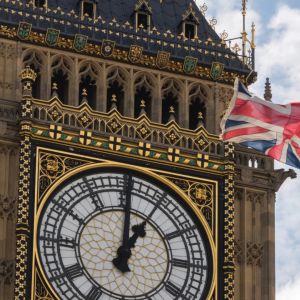
UK Prime Minister Keir Starmer has committed to spending 5% of the country’s economic output on security by 2035, aligning the UK with NATO’s ambitious new defense spending target. The announcement comes as NATO leaders gather in The Hague to adopt the 5% goal —an increase from the alliance’s current 2% target—amid rising global security concerns. “This is an opportunity to deepen our commitment to NATO and drive greater investment in the nation’s wider security and resilience,” Starmer said in a statement ahead of the summit. The pledge, seen as a nod to US President Donald Trump’s longstanding calls for European nations to shoulder more defense responsibilities, marks a significant step up from the UK’s current plans to reach 2.6% by 2027, including intelligence spending. However, the government has not detailed how it plans to meet the 5% goal, especially given that the lion’s share of the increase will occur after the next two general elections. Broader definition of security to include cyber defense, infrastructure, and borders As part of the new framework, the UK will broaden its definition of security spending beyond traditional defense to include border protection, critical infrastructure, and supply chain resilience. Starmer’s office said that factoring in these additional categories, the UK will hit 4.1% of GDP on security by 2027. Despite the expanded scope, the government has no current plans to increase core military spending beyond 2027. Still, the commitment envisions dedicating 3.5% to defense by 2035, leaving the remaining 1.5% for broader security efforts. Starmer had previously presented his increase in defense spending to 2.5% of GDP as “the biggest sustained rise since the end of the Cold War.” He first hinted at further increases in an interview earlier this month. NATO allies respond as the UK extends deadline and emphasizes strategic independence Russia’s ongoing war in Ukraine has intensified calls across Europe to bolster defense budgets, especially with growing uncertainty around the US security posture under a potential second Trump administration. To that end, Starmer ultimately won a commitment from the NATO Secretary General, Mark Rutte, to extend the deadline from 2032 to 2035. Most NATO allies will accept the new target. Still, Spain won an exemption through lobbying, demanding the rate be set at 2.1%, arguing that capability, not money, matters. Germany, meanwhile, said it intended to increase its defense expenditure to 3.5% in the next five years . The UK is also expected to unveil its National Security Strategy this week, alongside a long-awaited review of its ties with China and a new industrial plan. According to Starmer’s office, the strategy will emphasize competitiveness in areas such as science, education, trade, and advanced technology. It includes £86 billion ($116 billion) earmarked for R&D investment to support technology growth and strengthen protection against cyber threats and sabotage. Starmer’s office said they would become more unapologetic and systematic in pursuing their national interests, signaling a shift toward greater strategic independence and resilience. Cryptopolitan Academy: Coming Soon - A New Way to Earn Passive Income with DeFi in 2025. Learn More
